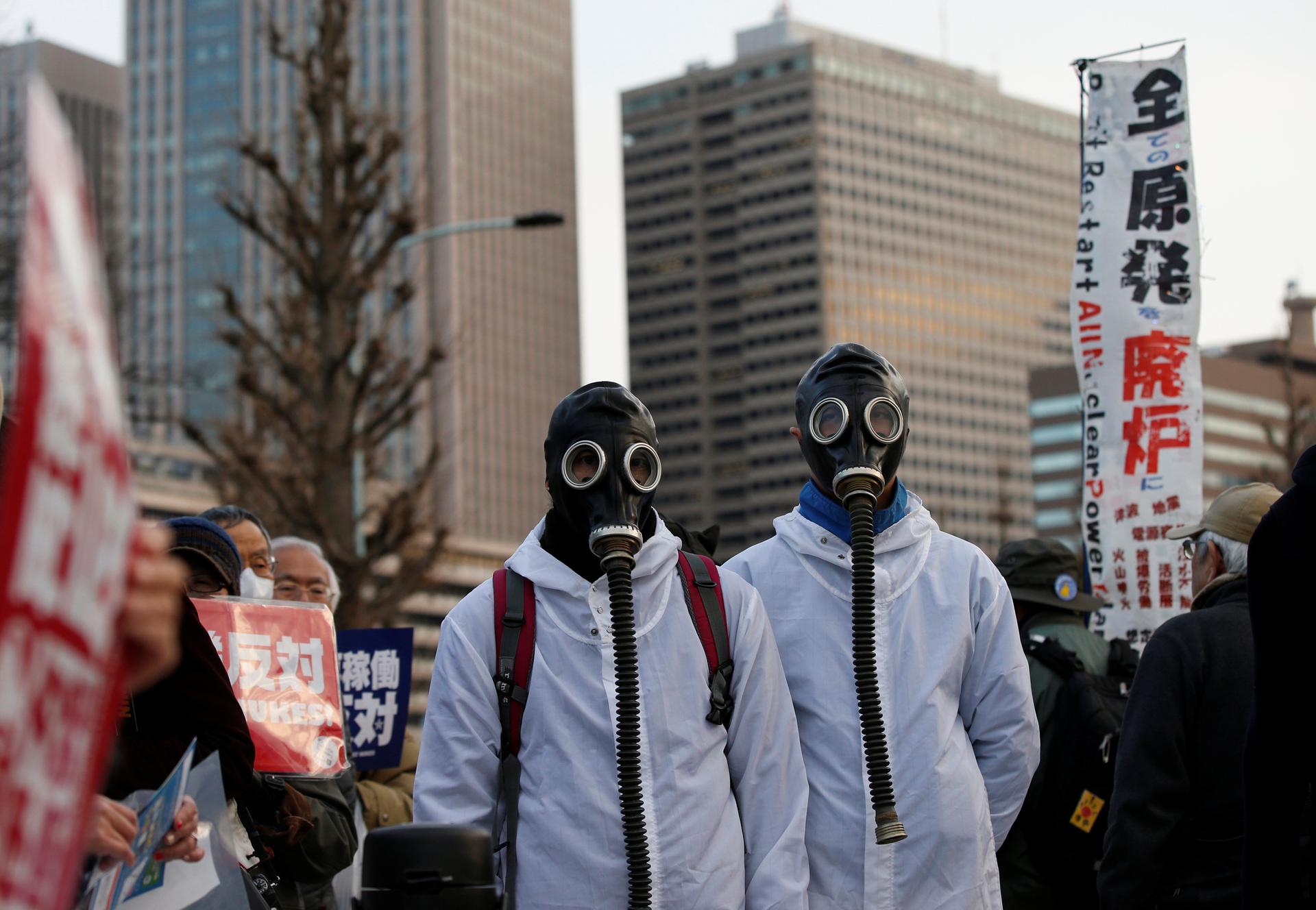Six years later, Japan is still struggling to clean up Fukushima
Antinuclear protesters gather at a rally in front of the parliament building in Tokyo, Japan, on March 11, 2017, to mark the six-year anniversary of the March 11, 2011, earthquake and tsunami that killed thousands and set off a nuclear crisis.
Six years after the Fukushima Daiichi meltdown, officials are still seeking ways to deal with the huge amount of hazardous waste being generated at the nuclear power plant.
Tokyo-based journalist James Simms has been covering the Fukushima cleanup since shortly after the effort was crippled by a tsunami in March 2011.
He told The World that six years on, there has been some progress toward decommissioning the plant, “but many unforeseen issues may mean that the cleanup and dismantling and decontamination will take longer than previously expected.”
Cleanup crews have built an underground ice wall and used pumps to prevent water from seeping into the plant and becoming contaminated. Recently, Simms says that’s reduced the amount of groundwater being contaminated from about 207 tons to 140 tons a day.
In another sign of progress, the Fukushima Prefecture plans to reduce the size of the no-fishing zone surrounding the power plant.
Still, the Tokyo Electric Power Company is pumping hundreds of tons of water a day to cool reactors and spent fuel, then treating it and storing it in huge tanks that are quickly filling up the vacant land around the power plant.
“Obviously, there is a limit” to how many tanks can be built, Simms says.
Officials eventually hope to release treated water containing radioactive hydrogen, or tritium, directly into the ocean instead of storing it indefinitely.
“A lot of the industry experts say that you can release that in diluted levels into the ocean,” Simms says, “but obviously, the fisheries cooperative is very wary of that because it will just sort of undermine the confidence that they’re trying to build up in the seafood in Fukushima.”
Distrust of nuclear power and the Tokyo Electric Power Company remain high in Japan, where Simms says a majority of the public opposes nuclear power.
For more on the progress of clean-up efforts at the Fukushima nuclear plant, listen to the audio above.
Every day, reporters and producers at The World are hard at work bringing you human-centered news from across the globe. But we can’t do it without you. We need your support to ensure we can continue this work for another year.
Make a gift today, and you’ll help us unlock a matching gift of $67,000!
